Western Sahara has been occupied by Morocco since 1975. It is the last unresolved colonial conflict in Africa. 174,000 Saharawis live in refugee camps, while others live under occupation. Together, we are campaigning for their rights and self-determination.
people
have been living in refugee camps for 50 years.
summer temperatures
make life in the desert almost unbearable.
landmines
are located along the Berm, the dividing wall in Western Sahara.
USD
– the estimated annual yield from phosphate mining in the occupied territory.
Western Sahara, located south of Morocco, was a Spanish colony until 1975 and has since been largely occupied by Morocco. This conflict is often referred to as the last unresolved colonial conflict in Africa. The Saharawis, the indigenous people, live either in tough conditions in refugee camps in Algeria or in the occupied territory, where they are subjected to daily human rights violations. A small part of the population lives in the liberated territory, a barren strip of land.
Although the UN agreed a referendum on self-determination in 1991, this is still being impeded today. Instead, the situation is deteriorating: the refugees are dependent on dwindling aid supplies, and the isolation and lack of prospects are hitting young people particularly hard. We are drawing attention to the conflict, helping to improve living conditions in the Saharawi refugee camps, working to stop the illegal exploitation of resources and supporting the people in their peaceful struggle for self-determination.
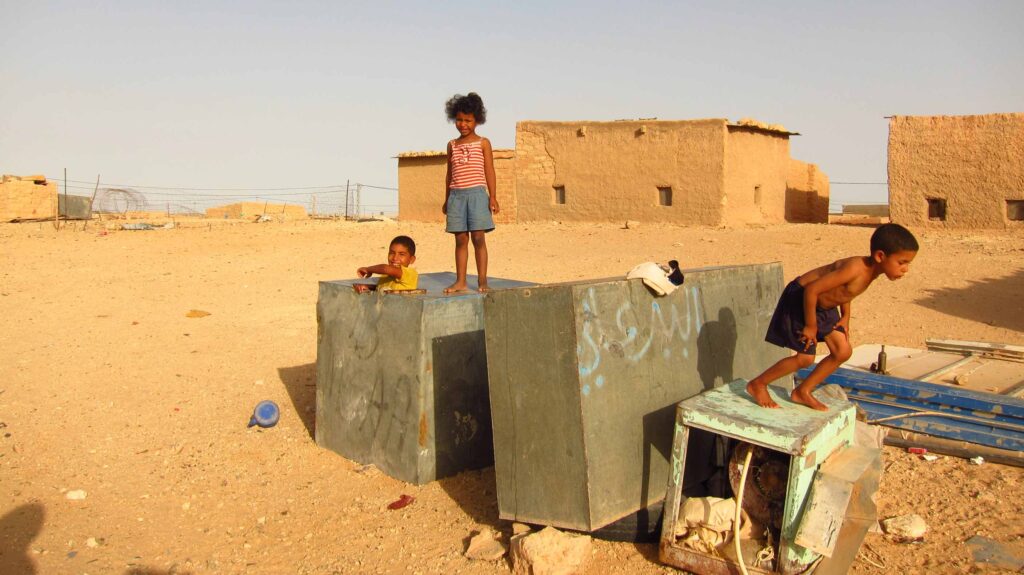
Our commitment to the Saharawis and their rights
terre des hommes schweiz has been supporting youth projects in the refugee camps in Western Sahara for many years. These initiatives promote education, mental health and the social integration of young Saharawis. We also use information campaigns and lobbying to ensure that the situation of the Saharawis is not forgotten internationally.
We raise awareness of economic exploitation and urge companies and politicians to comply with international law. Our projects give young people in the camps a voice and create space for development among these difficult circumstances.
Around 174,000 people live in the five refugee camps in western Algeria. They fled from the bombing of their homeland by Morocco in 1975. They have been dependent on aid supplies for decades. The situation is particularly difficult for young people: while some may have good educational qualifications, there are hardly any economic prospects.
The situation is further exacerbated by the climatic conditions. The infrastructure is regularly destroyed by seasonal flooding, while the summer heat is unbearable ,with temperatures of over 50 degrees. terre des hommes schweiz supports youth projects in the Smara camp to give young people hope through education, cultural activities and social projects.
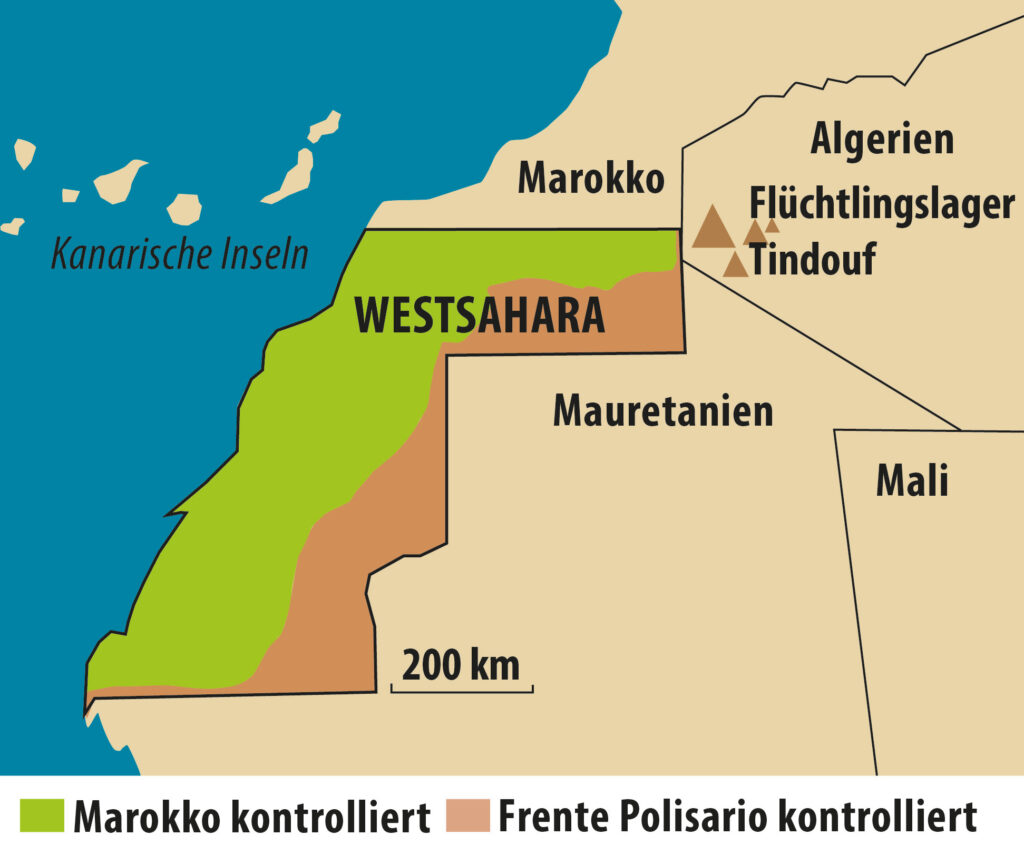
In the occupied territory of Western Sahara, the Moroccan occupying power relies on brutal repression. Peaceful demonstrations by Saharawis are violently crushed and activists often end up in prison. The 2,700 km Berm, a sand wall fortified with millions of landmines, separates the occupied territory from the liberated territory. This makes the situation even more precarious for the Saharawis.
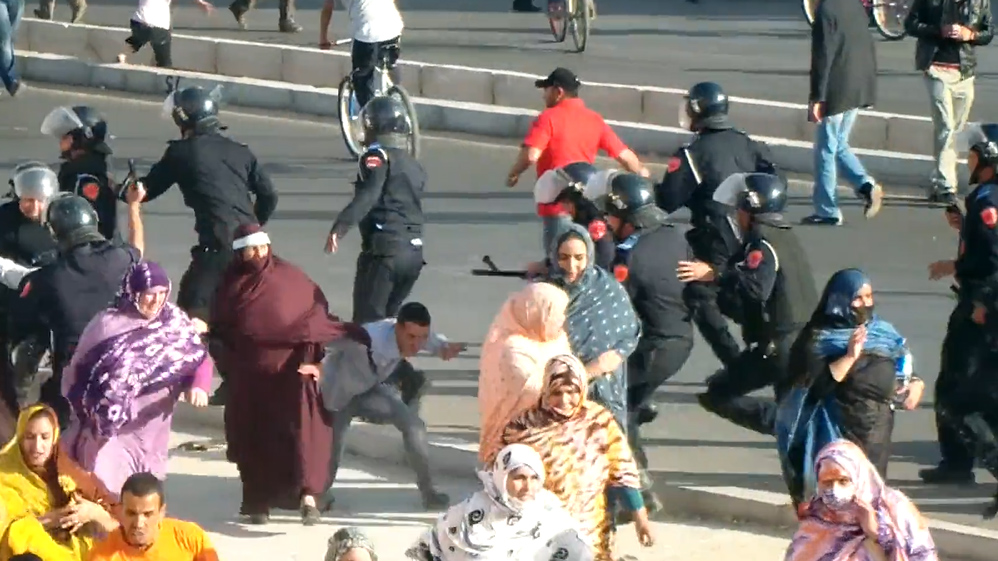
The occupied territory is rich in natural resources such as phosphate, fish and agricultural products. International companies, including Swiss companies, profit from the occupation and the illegal exploitation of resources, and reinforce the injustice. The Court of Justice of the European Union has repeatedly ruled that Morocco and Western Sahara are distinct territories and that economic agreements may only be concluded with the consent of the Saharawis and their representative, the Frente Polisario.
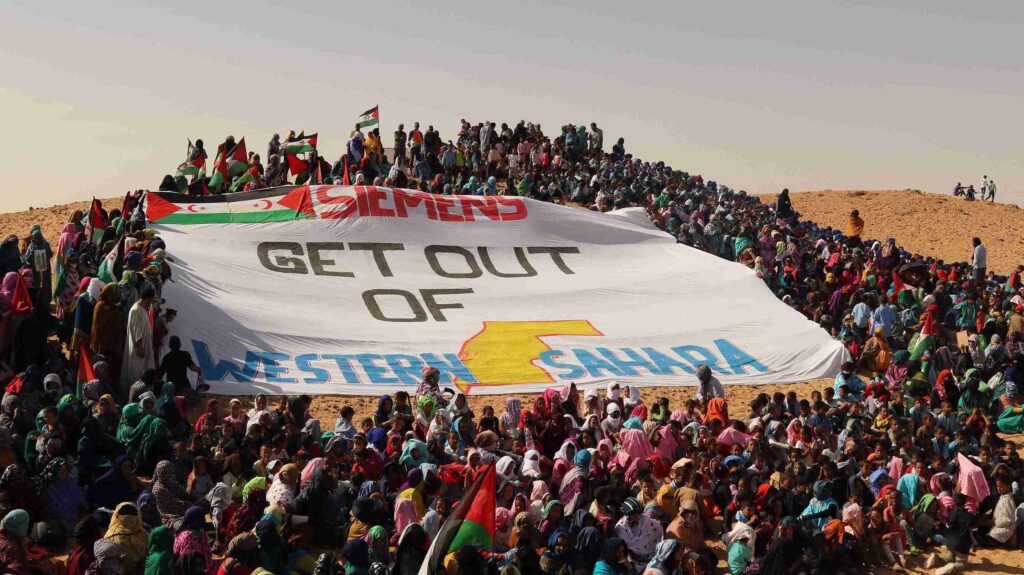
In addition to the exploitation of resources, large infrastructure projects are also being carried out without the consent of the Saharawis. These include renewable energy projects, which have the effect of further cementing the occupation. Companies often argue that the local population benefits from these economic activities, but the truth is that the promotion of the ‘Southern Provinces’ – the term used by the occupying power’s to refer to Western Sahara – is part of a settlement policy. terre des hommes schweiz is campaigning for an end to the illegal exploitation of resources and is calling for compliance with international law.
Find out more in the factsheet on the exploitation of resources and the Swiss companies involved.
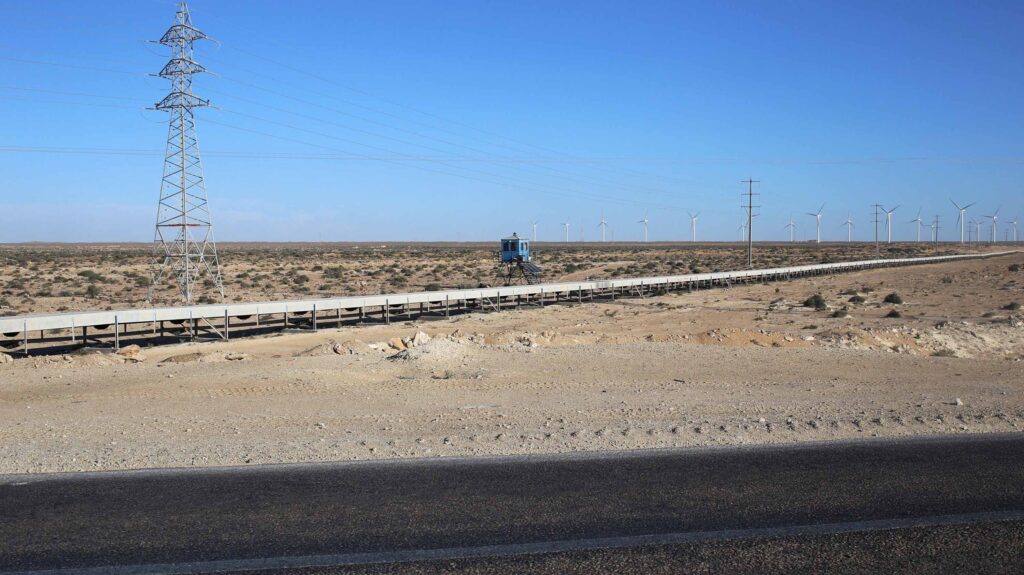
Do you have questions about this topic?
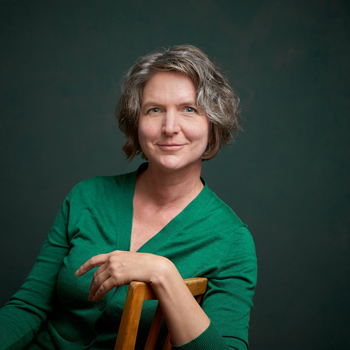
terre des hommes schweiz
Kasernenhof 8
4058 Basel